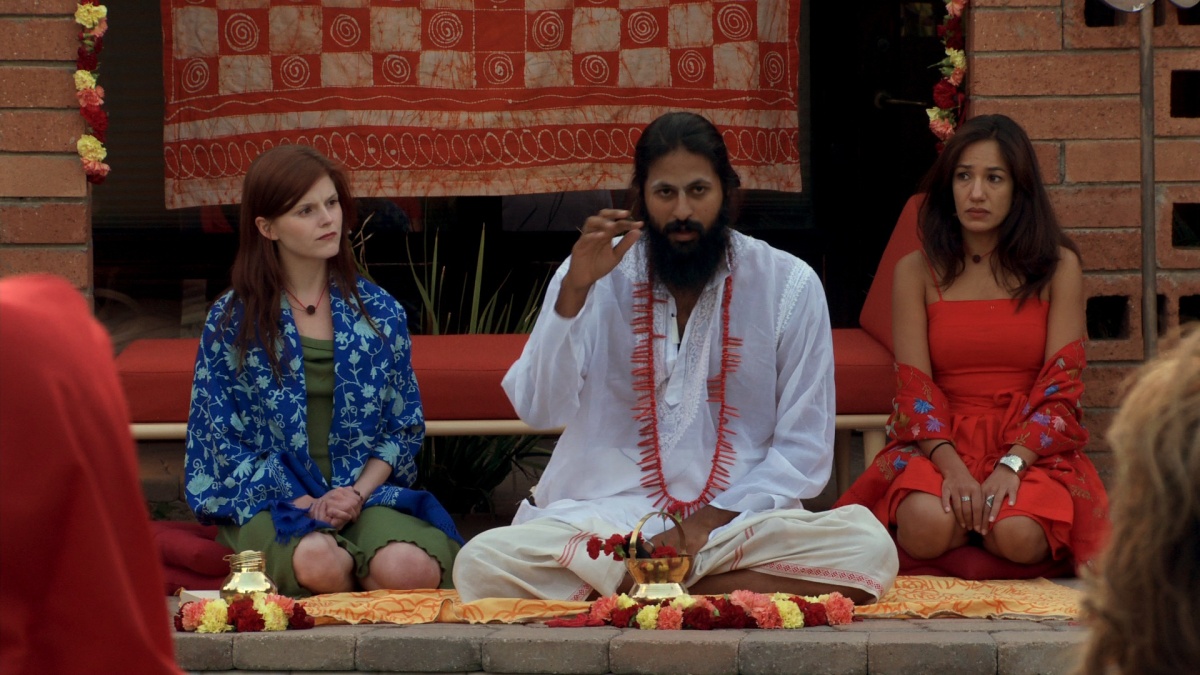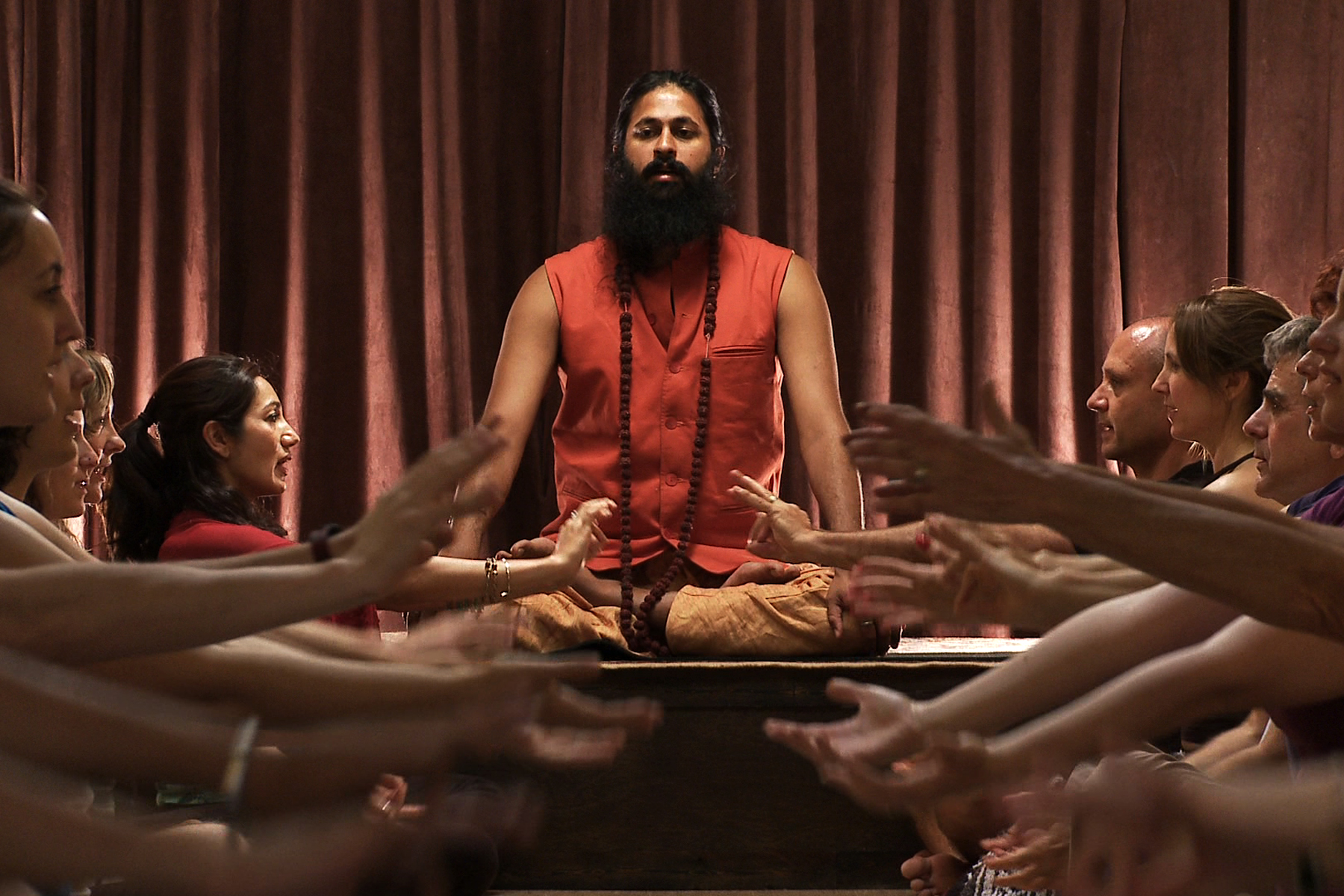Who needs a guru? Do we really know what a guru is?
We’ve come to the point in history where English speakers have adopted the words mantra and guru as household words. That means we know what a guru is, right?
The film Kumare follows Vikram Gandhi as he conducts an extreme social experiment:
he grows out his beard, puts on the garb of a guru and personally plays the part of a wise man to find out, up close and personal, why people seek out face-to-face spiritual guidance from a human being.

Gandhi gives us his background in the beginning of the film: he was born in New Jersey in the early 80’s to Indian immigrants and raised like many other American kids, but was always questioning his family’s religious traditions. He explains,
“I guess my problem wasn’t with spirituality. It was just with spiritual leaders. Why do we need them?”
He chooses Phoenix, where he expects to find people who would be open to his ‘teachings.’ What are those teachings?
The core of his message to his followers is that they don’t need a guru because their true guru is within.
He develops a philosophy which professes that truth is illusion, the student is the guru, and the ultimate spiritual goal is to align the everyday self with the ideal self. It all sounds sensible and simple. I’d venture to say you could do a Google search and surmise the same things by reading teachings of any other spiritual teacher.

What did Gandhi find from his experience as a fake guru?
Kumare’s experiment shows us that, even when told they are their own guru, many people still hold onto that idea that it has to be a man in flowing robes with long hair and a beard. Wait, doesn’t that include some hippies and characters from Lord of the Rings? Some might say that these are irreverent questions, but the whole Kumare experiment is based on a lie, without being irreverent. Let me explain.
The fact that Gandhi had the guts and the gumption to invest time, money, and effort in such grand deception is impressive, but what is even more incredible is that he was able to do it with a sense of compassion.
He was driven by pure curiosity with no ill intent. He admits, “I had connected with people more deeply as Kumari than I had as Vikram….” That sounds great for his own personal journey, but wasn’t it cruel of him to fool all those innocent people who were sincerely seeking guidance?

Do I recommend the film? Absolutely!
I recommend it so much that I wrote this review 5 years after it was released because I think that the message it conveys is timeless and essential, especially for yogis who know there’s more to yoga than wearing tight pants and bending in all directions.
Oh yeah, and for anyone who wants to know what the heck is going on with all the guru hype.




